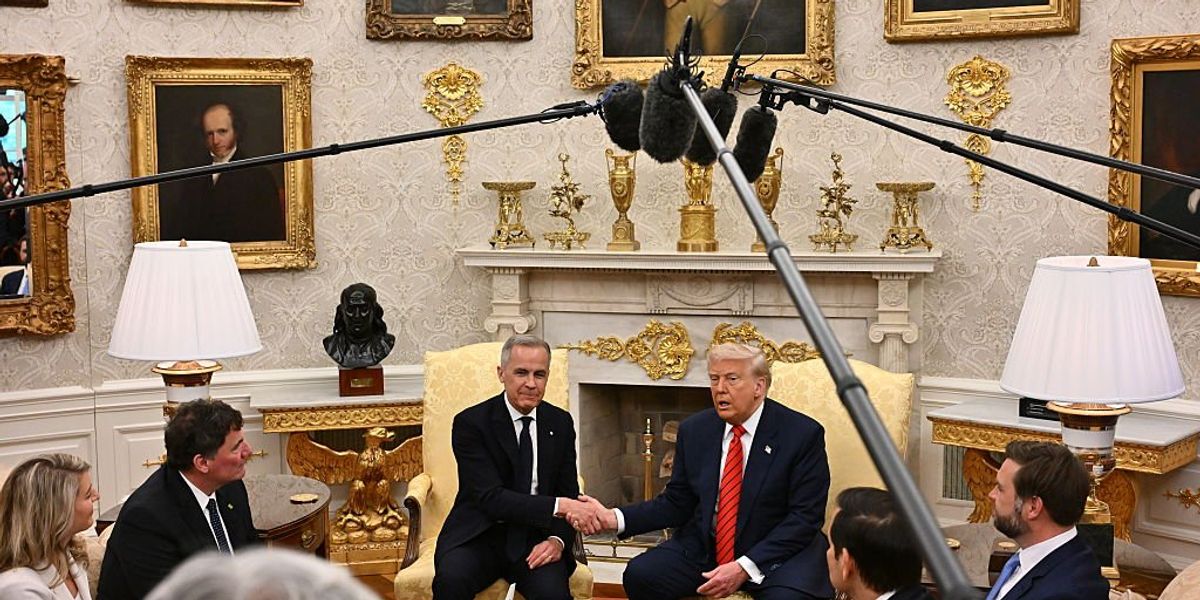

It was another surreal moment in the bizarre relationship between President Donald Trump and new Canadian Prime Minister Mark Carney, staunch political opponents who nonetheless seem to have a genuine affection for each other — at least when face to face.
Carney was in Washington, D.C., Tuesday to meet with the president in his first foreign trip as an elected prime minister. Given that Carney won Canada's April 28 federal election largely by vowing to stand up to Trump, a little tension might have been expected at the White House news conference.
Carney insisted that Trump must stop alluding to Canada as the 51st state if negotiations are to proceed unimpeded.
Instead, Trump called Carney “a talented person." Carney described Trump as “a transformational president.”
No hard feelings
For his part, Trump seems to have been sincere — after all, the president endorsed Carney on three different occasions and was happy to take credit for his victory in typical Trumpian fashion.
Carney's words, however, were a far cry from the tough rhetoric he used while propelling his Liberal Party to a fourth straight term in power. On the campaign trail, Carney vowed to fight Trump and his tariffs every chance he got — tough talk that had no small part in securing his victory.
Clearly any tariff talk was going to go on behind closed doors — at least Trump certainly wasn't giving anything away during the two leaders' first official appearance together.
Each man was surrounded by close advisers. Trump had Vice President JD Vance and Secretary of State Marco Rubio, while Carney looked to Foreign Affairs Minister Melanie Joly, Public Safety Minister David McGuinty, and International Trade Minister Dominic LeBlanc.
No business
For most of the conversation with the anxious media, Trump behaved as if Carney weren’t even sitting beside him, almost never referencing his presence or even why he was in Washington.
Carney sat in perfect subservience to the master.
Trump held forth in his usual manner, talking about any issue that came to mind except tariffs. In fact, he dismissed the significance of the neighboring countries' economic relationship: “We don’t do much business with Canada from our standpoint. They do a lot of business with us. We’re at like 4%.”
Carney was quick to point out how ridiculous this statement was — that Canada is in fact “the largest client of the United States." It was probably the clearest moment of truth the banker turned politician has had since he decided to run for the leadership of the Liberal Party.
'Maybe even greater than mine'
Trump introduced Carney like an old friend and valued colleague:
It's a great honor to have Prime Minister Mark Carney with us. As you know, just a few days ago, he won a very big election in Canada, and I think I was probably the greatest thing that happened to him, but I can't take a vote. They were — his party was losing by a lot, and he ended up winning. So I really want to congratulate him.Was one of the — probably one of the greatest comebacks in the history of politics, maybe even greater than mine. But I want to just congratulate you. Was a great election. Actually, we were watching it with interest, and I think Canada chose a very talented person, a very good person, because we spoke before the election quite a few times, and it's an honor to have you at the White House and the Oval Office.
That was news! They spoke several times during the election? Carney had only mentioned one conversation.
A 'transformational' president
Carney returned the collegiality, saying, “Thank you for your hospitality and, above all, for your leadership. You're a transformational president.”
The prime minister explained that Trump was so transformational because of his “focus on the economy, with a relentless focus on the American worker, securing your borders, ending the scourge of fentanyl and other opioids, and in securing the world.”
Carney, in a jaw-dropping sequence, explained that he too was fighting for exactly the same things and that he would
transform Canada with a similar focus on the economy, securing our borders, again, on fentanyl, much greater focus on defense and security, securing the Arctic and developing the Arctic. And you know, the history of Canada and the U.S. is that we're stronger when we work together. And there's many opportunities to work together.And I look forward to, you know, addressing some of those issues that we have, but also finding those areas of mutual cooperation so we can go forward.
Trump nodded and said, “That's great. Very nice. Thank you very much. Very nice statement.”
Fighting words
There was one moment of defiance from Carney as Trump again raised the specter of Canada becoming part of the United States. “Respectfully, Canadians’ view on this is not going to change, on the 51st state," the prime minister said.
Trump genially agreed to disagree, insisting that his relationship with Carney was “very friendly,” even as he reiterated his position that the U.S. did not want to buy any Canadian cars or steel.
Nor did Trump budge on the existing tariffs on cars and steel. When a reporter asked if there was anything Canada could do to roll the tariffs back, the president replied with a flat "no."
No love lost
Trump quickly moved the conversation to a happier subject: how much he loathed former Prime Minister Justin Trudeau and his deputy, former Finance Minister Chrystia Freeland.
I won't say this about Mark, but I didn't like his predecessor. I didn't like a person that worked for him. She was terrible. Actually, she was a terrible person, and she really hurt that deal very badly, because she tried to take advantage of the deal, and she didn't get away with it. …We had a bad relationship having to do with the fact that we disagreed with the way they viewed the deal, and we ended it. You know, we ended that — that relationship. Pretty much the USMCA is great for all countries. It's good for all countries. We do have a negotiation coming up over the next year or so to adjust it or terminate it.
Carney managed to get a word in on the USMCA free trade deal between the U.S., Canada, and Mexico, calling the defunct treaty “a basis for a broader negotiation. Some things about it are going to have to change. And part of the way you've conducted these tariffs has taken advantage of existing aspects of USMCA, so it's going to have to change. There's other elements that have come, and that's part of what we're going to discuss during the campaign.”
Positive post-mortem
The two leaders spent another few hours in private meetings before Carney emerged at the Canadian embassy in Washington to explain what progress had been made.
"I conveyed to the president today what our countries have long proven to be true: that Canada and the United States are stronger when we work together," said Carney.
"Really today marked the end of the beginning, of a process of the United States and Canada redefining that relationship of working together. The question is, how we will cooperate in the future. How we can build an economic and security relationship built on mutual respect and common interests, that delivers transformational benefits to our economies."
Carney insisted that Trump must stop alluding to Canada as the 51st state if negotiations are to proceed unimpeded.
"I've been careful always to distinguish between wish and reality. I was clear there in the Oval Office, as I've been clear throughout on behalf of Canadians, saying this is never going to happen. Canada is not for sale; it never will be for sale," said Carney.
.png)
 3 hours ago
2
3 hours ago
2
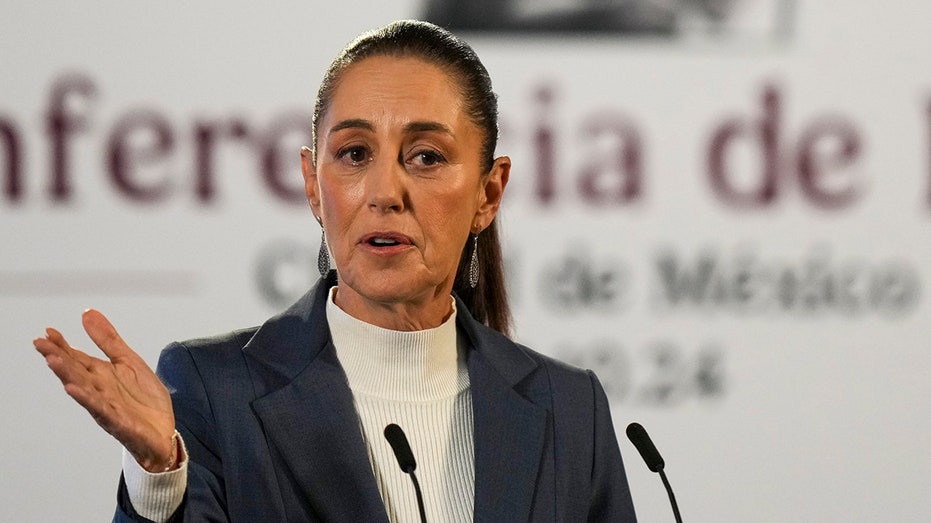




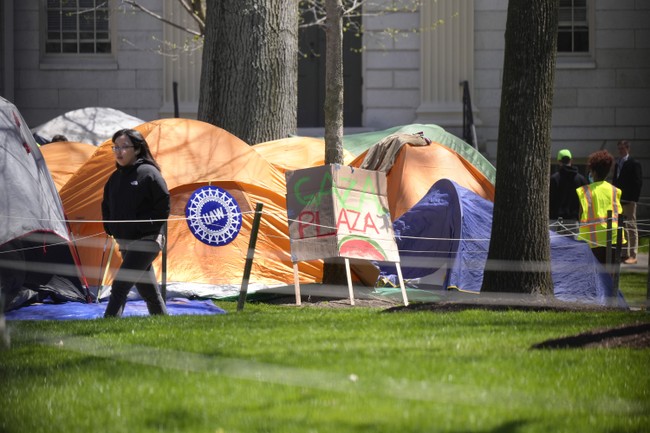
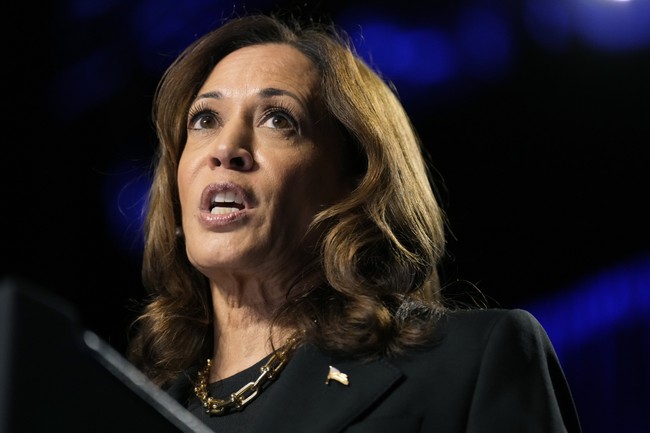



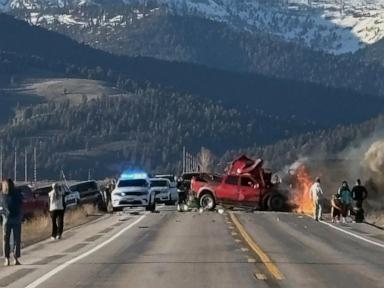


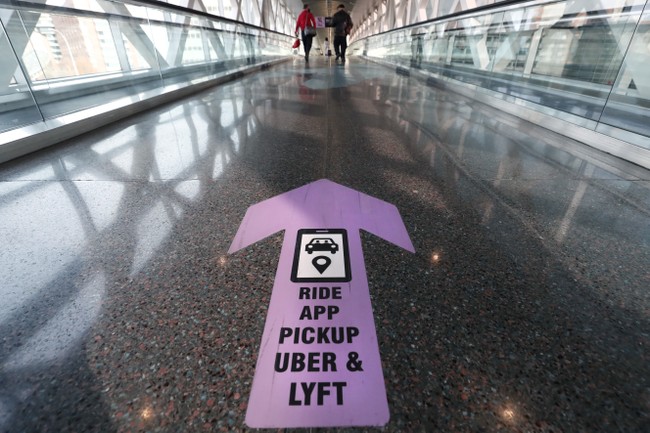

 English (US)
English (US)